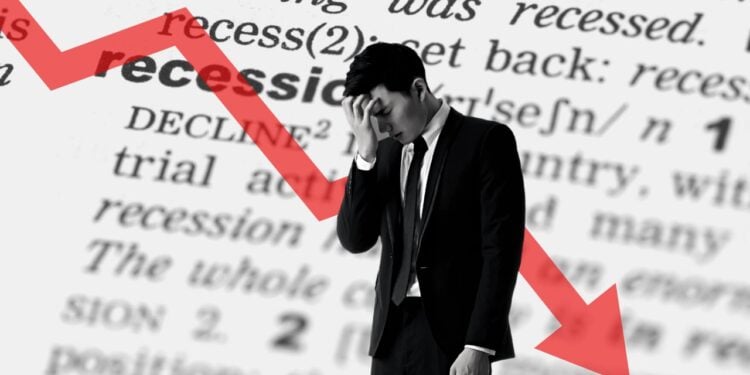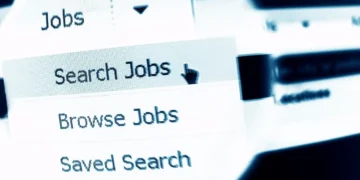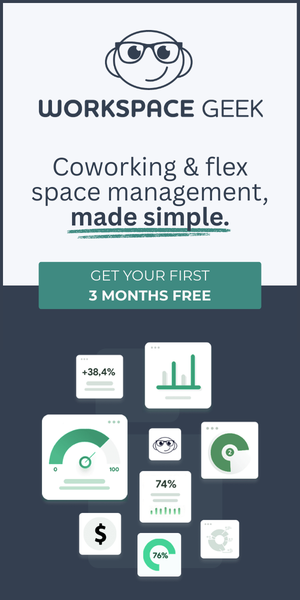- High interest rates, costly essentials, and a slowed job market have led to significant economic anxiety among Americans, with a large majority still worrying about a recession.
- Although experts say a recession is likely not on the horizon, there are ways to prepare for a financial downturn.
- To prepare for financial uncertainty, individuals should build emergency savings, focus on job security, and follow this professional advice.
Interest rates are high, food and gas seems like luxuries, the job market has significantly slowed down, and home prices are exorbitant.
Economists say America isn’t in a recession, or even headed into one, but the day-to-day reality for many workers can make that feel far-fetched.
MyPerfectResume found that 85% of surveyed American workers are worried about losing their jobs, while 78% of them predict a recession is imminent.
The onset of the 2020 pandemic triggered what seemed like a brief yet severe recession. As the economy rebounded, consumer demand exceeded supply, leading to a surge in inflation that peaked at over 9% year-over-year by mid-2022.
In response, the Federal Reserve (Fed) significantly increased interest rates to curb inflation. Although this measure aimed to decelerate economic growth to manage inflation, many speculated that the higher interest rates would substantially impede the economy — potentially starting a recession, according to the U.S. Bank.
But it has not done so — yet.
“It seems likely the economy may avoid a recession in the near term, though we can expect that real GDP growth will remain modest over time,” said Matt Schoeppner, senior economist at U.S. Bank.
Regardless of this promising sentiment, professionals are on edge and want to take measures to ensure that they are prepared for the worst-case scenario. Here is what the workforce needs to understand about a recession, and what steps to take to ease their fears. Plus, guidance from an expert on how workers can take preventative measures to protect themselves prior to a financial downturn.
What actually happens during a recession?
There’s a lot of talk about whether a recession will happen or not, but less talk about what that actually means. Given the disconnect between economists and workers, establishing a baseline explanation of the realities of a recession is important.
- Economic Contraction: A recession starts with a slowdown in economic activity, which is typically measured by a decline in Gross Domestic Product (GDP) for two consecutive quarters. This contraction can result from a variety of factors, including reduced consumer confidence, decreased investment by businesses, tightening of monetary policy, or external shocks.
- Unemployment Rises: As businesses experience lower demand for goods and services, they may reduce their workforce to cut costs. This leads to higher unemployment, which can further reduce consumer spending as people lose their primary source of income.
- Decrease in Consumer Spending and Investment: Reduced consumer confidence and spending power lead to lower sales for businesses. Companies, in turn, may hold off on investments in expansion, new projects, or hiring. This creates a feedback loop that exacerbates economic contraction.
- Financial Market Volatility: Stock prices often fall during recessions as investor confidence wanes and corporate earnings decline. This can affect wealthier individuals more acutely due to decreased portfolio values, but it also impacts pension funds and retirement accounts, which can impact the broader population.
- Credit Crunch: Financial institutions may become more risk-averse, leading to tighter lending standards. This means loans for businesses and consumers become harder to obtain, further stifling economic activity. For companies, this might mean delaying or canceling capital expenditures.
- Inflation and Deflation Pressures: While many recessions are characterized by declining prices (deflation) due to reduced demand, in some cases, supply chain disruptions or other factors can lead to inflation even during a downturn. Central banks closely monitor these trends to adjust monetary policy accordingly.
- Government Response: Typically, governments respond to recessions with fiscal stimulus, such as tax cuts, direct payments, or increased public spending to boost economic activity. Central banks might also lower interest rates or engage in quantitative easing to increase money supply and encourage lending and investment.
- Social Impact: The human cost of a recession can be significant, affecting mental health, increasing poverty rates, and causing housing and food insecurity for many individuals.
The human cost of a recession can be significant, affecting mental health, increasing poverty rates, and causing housing and food insecurity for many individuals.
Here are the best ways to prepare for turbulent financial times
Even if a recession is unlikely, there are steps workers should take now to mitigate their fears and prepare for more turbulent financial times.
- Have an emergency fund: Building an emergency savings fund is crucial. Ideally, workers should aim to save 3-6 months of living expenses. This cushion can help cover essential costs in case of job loss or unexpected expenses.
- Manage your debt: Prioritize high-interest debt first, as paying down high-interest debt (such as credit card debt) can reduce financial strain and free up funds. Also make sure to avoid new debt. In uncertain times, it’s wise to avoid taking on new debt unless absolutely necessary
- Start budgeting: Tracking your expenses is extremely important, because understanding where money is going can help identify areas to cut back. It’s also helpful to adjust your spending by implementing a more conservative budget, focusing on essential expenses and reducing discretionary spending.
- Create an investment strategy: Diversify your investments, as a diversified portfolio can mitigate risks. It’s important to review investments periodically and adjust based on market conditions. For those invested in the stock market, maintaining a long-term perspective can help ride out short-term volatility.
- Think about employment security: Workers should focus on excelling in their current roles and maintaining strong professional networks. This can increase job security and open up new opportunities if they need to change jobs.
- Consider government resources and financial assistance: Being aware of government programs, unemployment benefits, and financial assistance resources can provide essential support during challenging times.
In a Q&A with Allwork.Space, Toni Frana, Career Services Manager at FlexJobs, explained how workers can take preventative measures to protect themselves prior to a financial downturn.
Some quotes have been edited for length and clarity.
Allwork.Space: Who is most impacted by a recession?
Toni Frana: During times of any economic uncertainty, people are impacted in different ways. On the career side, professionals may be forced to navigate a layoff or be more limited in prospective career opportunities. But as we remind clients, hiring still happens –– even in a recession.
The key to finding a job is to focus on what you can control as a job seeker, remain open to new opportunities, and put yourself out there in as good of a light as possible.
Allwork.Space: What is the biggest risk for workers during an economic downturn?
Toni Frana: With tighter job availability and layoffs, a recession can limit career prospects or make workers feel less confident in their ability to make a career change. But our coaching team reminds clients that part of building career resilience and managing this “risk” is knowing they’re responsible for charting their path.
Lead with an entrepreneurial mindset and know that a career is yours alone to manage; you have the power to overcome obstacles and achieve the short and long-term goals you set out.
Allwork.Space: Are there preventative measures workers can take to protect themselves prior to a downturn?
Toni Frana: Practice career resilience. This includes proactively taking ownership of your career and personal brand, listing achievements and getting letters of recommendation, building your network, and staying open to all opportunities. Together, this will give you the ability to adjust to career changes, challenges, and the ups and downs along your career path.
Additionally, workers can alleviate some of the economic pressures from a recession by better monitoring daily expenses and getting all household finances in order in advance.
Review budgets, find ways to reduce spending, and focus on building an emergency fund that has at least 3-6 months of living expenses. This is especially important in the event of a layoff or during times of economic downturn, because having a financial safety net can allow you to make informed decisions based on current job experiences, not how much money is in your account.
Allwork.Space: What are the best practices for workers once a recession is in full swing?
Toni Frana: If you’re a worker or looking for a job during a recession, consider remote work to expand your geographic range and opportunities.
In addition to full-time employee roles, also consider searching for non-traditional types of work like freelancing and multiple part-time or side gigs — knowing that these don’t have to be a permanent choice.
If history is any indicator, there’s a good possibility that remote freelance jobs will continue to increase just like we saw in past recessions.
Most importantly — once you find a job, practice career resilience by:
- Developing a strong, supportive professional and personal network, which can help you work through hard times and enable you to support others as well.
- Committing to lifelong learning that lets you take charge of your own career development and increases your resiliency and self-confidence.
- Looking at today’s setbacks as tomorrow’s opportunities, and thinking about how your career success may look five or even 10 years down the road.

















